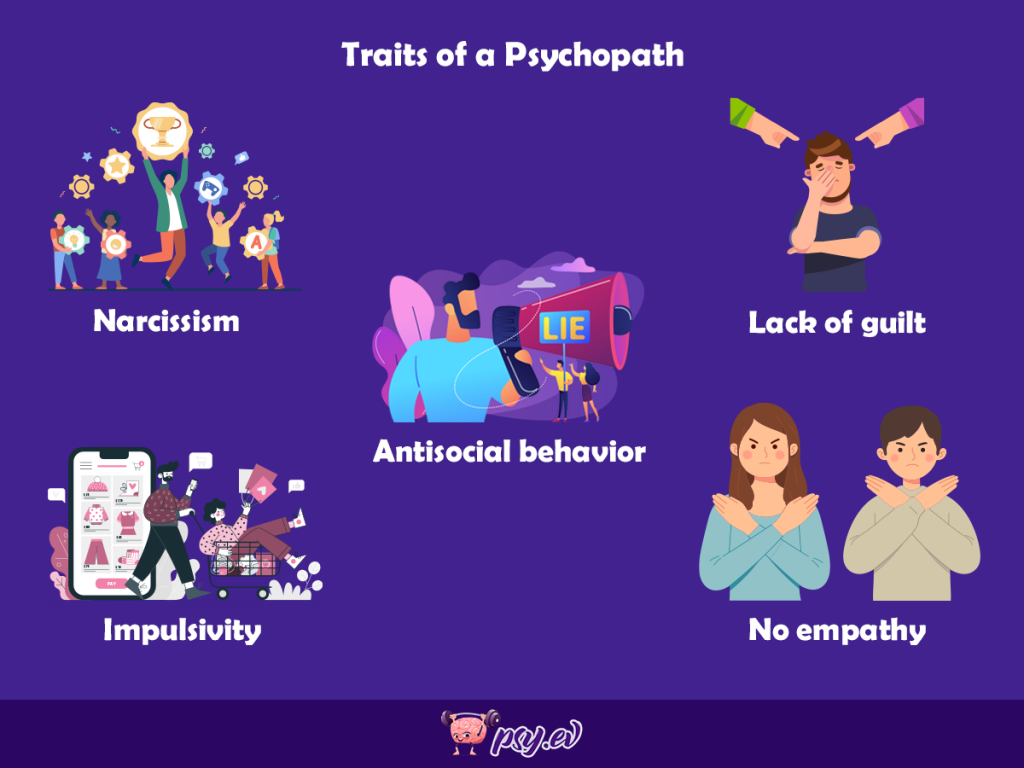The word “psychopath” often conjures up images of serial killers and mass murderers. But not all psychopaths are violent criminals. In fact, many psychopaths lead perfectly normal lives. So, what is a psychopath? And should you be worried if you think you or someone you know might be one?

What Is a Psychopath?
The term “psychopath” is actually a technical term used in psychiatry and clinical psychology. A psychopath is someone who suffers from a personality disorder that is characterized by a lack of empathy and a propensity for antisocial behavior. Psychopaths are often described as “charmingly sociopathic” because they can be very charming and charismatic. But underneath that charm lies a complete lack of empathy for other people.
Psychopath Definition
Wikipedia defines a psychopath as “sometimes considered synonymous with sociopathy, is characterized by persistent antisocial behavior, impaired empathy and remorse, and bold, disinhibited, and egotistical traits.”
Are All Psychopaths Violent Criminals?
No, not all psychopaths are violent criminals. In fact, many psychopaths lead perfectly normal lives. They can be successful in their careers and have healthy personal relationships. However, because they lack empathy, they may not be particularly close to their family and friends and may have difficulty sustaining long-term relationships.
Common Psychopath Traits
Psychopathic behavior can vary greatly from one individual to another. Some may be sex offenders and murderers, while others might lead successful lives as leaders; it all depends on their traits! It’s also important for you to keep in mind the difference between a “psychopath” and a “sociopath.” Although they share some common symptoms, sociopaths generally have more remorse than psychopaths.
Listed below are common psychopathic traits:
- Lack of empathy
- Narcissism
- Superficial charm
- Impulsivity
- Antisocial behavior
- Lack of guilt
- Callous, unemotional traits
Do Psychopaths Feel Emotion?
Contrary to popular belief, psychopaths do feel emotion, but they process it differently than non-psychopaths. They might feel fear or anxiety in response to a threat, but they don’t experience the same emotional roller coaster that most people do. For example, they might not feel sadness or remorse the way other people do.
Treatments for Psychopathy
There is no known cure for psychopathy, but there are treatments that can help psychopaths control their impulses and emotions. If left untreated, psychopathy can have serious consequences, such as violence, crime, and substance abuse.
Behavioral therapy is one treatment option that can help psychopaths learn to control their emotions and impulses. In some cases, medication might also be prescribed to help with symptoms like anxiety or depression.
Is There a Psychopath Test?
We have available psychopath test that can be used to diagnose psychopathy, but the most common is the PCL-R (Psychopathy Checklist-Revised) and the Psychopathic Personality Inventory (PPL).
Psychopathy Checklist-Revised (PCL-R): The PCL-R is a 20-item questionnaire that rates a person’s psychopathic or antisocial tendencies. A score of 30 or above indicates psychopathy.
Psychopathic Personality Inventory (PPL): The PPL is a 30-item self-report measure of psychopathic personality features. A score of 60 or above indicates psychopathy.
Should You Be Worried If You Think You or Someone You Know Might Be a Psychopath?
If you think you might be a psychopath, it’s important to seek professional help. A qualified mental health professional can administer tests to see if you fit the criteria for psychopathy. If you do, they can help you learn how to control your impulses and manage your emotions.
If you think someone you know might be a psychopath, there’s no need to panic. Remember that not all psychopaths are violent criminals. However, it is important to keep an eye on them and make sure they’re getting help from a mental health professional if necessary.
Signs of a Psychopath
The signs of a psychopath can be seen throughout childhood and worsen with age. Below are the most common psychopathic traits
Lack of empathy: They are incapable of feeling empathy or remorse for the harm they cause others.
Lying and manipulation: They are skilled liars and manipulators. They might lie to get what they want or to avoid taking responsibility for their actions.
Impulsivity and aggression: They are impulsive and prone to aggression. They might act without thinking about the consequences of their actions and be quick to anger.
Superficial charm: They can be superficially charming and attractive. They might use this charm to take advantage of others.
Grandiose sense of self: They have a grandiose sense of self. They believe they are better than others and deserve special treatment.
Lack of remorse: They are incapable of feeling remorse for the harm they cause others.
Manipulative: They are skilled liars and manipulators. They might lie to get what they want or to avoid taking responsibility for their actions.
Impulsive: They are impulsive and prone to aggression. They might act without thinking about the consequences of their actions and be quick to anger.
Attractive: They can be superficially charming and attractive. They might use this charm to take advantage of others.
Grandiose: They have a grandiose sense of self. They believe they are better than others and deserve special treatment.
Callous: They lack empathy and are indifferent to the suffering of others.
Unemotional: They might not experience the same emotions as non-psychopaths. They might not feel sadness, guilt, or anxiety in the same way.
Violent: They might be violent or aggressive. They might lash out without provocation or warning.
Shallow emotions: They might not experience the same emotions as non-psychopaths. They might not feel sadness, guilt, or anxiety in the same way.
Irresponsible: They might be irresponsible and neglectful. They might not uphold their obligations at work or home.
Unremorseful: They are incapable of feeling remorse for the harm they cause others.
Psychopath vs. Narcissist
It’s easy to get psychopaths and narcissists confused because they share some common traits, such as a lack of empathy, a grandiose sense of self-worth, superficial charm, and manipulation. However, there are some key differences between the two.
Narcissists generally have a higher opinion of themselves and need constant validation from others, while Psychopaths are more likely to be unemotional and have a sense of detachment from the world. Narcissists might also be more likely to display their emotions, while psychopaths tend to keep them in check.
Conclusion:
Psychopathy is a serious mental illness that can have profound consequences for those who suffer from it. However, it’s important to remember that not all psychopaths are violent criminals. If you think you or someone you know might be a psychopath, the best course of action is to seek professional help from a qualified mental health professional.
